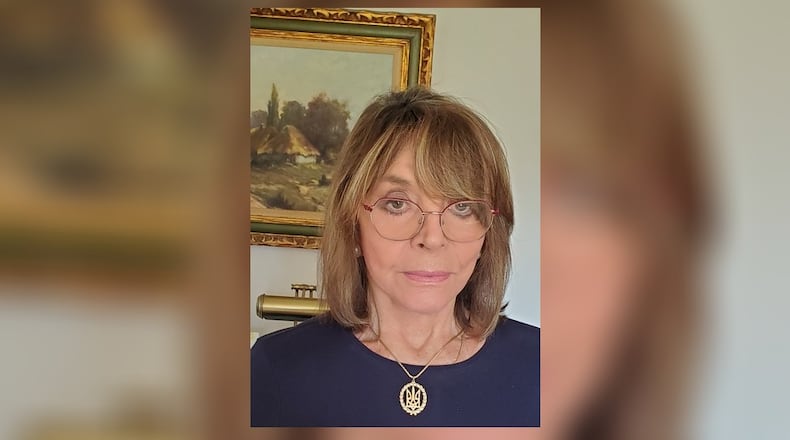And no wonder. A war on another continent taxed everyone’s attention span. Too long, too far away, too foreign, too costly.
Ukraine was once again propelled onto the global stage when Trump, the leader of the free world called the Russian dictator to discuss how to ostensibly bring peace to the devastated country. They are on the same page--no more American aid to Ukraine, and no hope of regaining territory seized by Russia. Trump said “They (Russians) took a lot of land. And they fought for that land...” Ukrainian land. Peace means surrender.
With this call Donald Trump has made Putin an equal on the political arena.
My cousin Victoria who is now in Germany with her family emailed: “After a conversation (amicable and on equal terms) with the aggressor, he (Trump) humiliated not only himself but the country which was perceived as a bulwark of democracy and peace…Today Ukraine is “drowning in blood”, Russia’s goal is to annihilate the nation. And European nations must beware—today Ukraine, who knows which one is next?”
After three years of catastrophic damage to infrastructure, civilian casualties and mass emigration, Ukraine is not the same nation as the one that heard the first sirens as the bombs fell in February of 2022. Millions of Ukrainians are dispersed throughout various countries. According to the United Nations Refugee Agency, this is the most massive displacement since WWII.
While the U.S. has accepted 270,000, most fled to Germany, including my relatives, who are now successfully adjusting to their new life. My cousin Victoria, her daughter, Lena, and 9-year-old twins Myron and Matvey who left at the start of the invasion have carved a life for themselves. And now that Andriy, Lena’s husband, was able to join them after fighting for two years and sustaining two injuries, the family is complete.
In Germany, they receive generous stipends and free health care. Lena, 47, is working in a retirement home and the children are in school. At 70, Victoria doesn’t work, and Andriy is hoping to find work.
One stipulation: they must learn the language, a task facilitated by free German classes.
They are the lucky ones. For the time being, this is the best outcome possible.
Unfortunately, my niece Yulia is in Kharkiv, a city less than 20 miles from the Russian border. She is in limbo, waiting for permission to emigrate to the United States. I applied to be her sponsor twice, once in May of 2023. That request was granted but she missed the 90-day window allowed to travel to the U.S. The second time was in August of 2024; no results yet.
Life goes on in Kharkiv, but relentless missile attacks forced schools to go underground, and not only schools. Yulia, a concert pianist, will be performing in a subway at an event commemorating the third anniversary of the invasion. She still has 40 students to whom she gives piano lessons online or in her home. Imagine, children are still studying music!
She and I Skype once a week. The mood is bleak in Ukraine. In September, Trump said that the country is “demolished” and “Ukraine’s people are dead.”
Yes, the country is demolished, but the one thing that is not dead is the spirit of the Ukrainian people. The country will not “be Russian some day”, a possibility Trump suggested. It is unacceptable. He should study history — for more than 300 years Russia has tried without success.
Tatiana Liaugminas was born after WWII to Ukrainian parents, refugees from the former Soviet Union. She’s an American citizen, with relatives in Ukraine. She is now retired from teaching Russian at the University of Dayton.
Ideas & Voices has published the correspondence from Liaugminas’ relatives since the outbreak of the war in Ukraine. Read her past columns below:
About the Author



